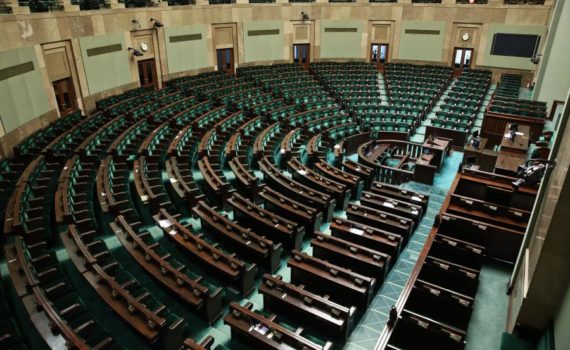
Legitimacy
Well, that didn’t last long.
A few days ago I expressed some cautious hope that PiS might, in fact, be defeated in the upcoming parliamentary elections, and that Poland could begin the difficult process of rebuilding democratic norms. I remain convinced that this possibility is very real, thought I admit that it is going to be very close.
But all that might be irrelevant. Jarosław Kaczyński and the various puppets he uses to rule the country are undoubtedly aware that if they lose power, they face a realistic risk of prosecution for all the illegal maneuvers they carried out since 2015. They must also recognize that they have transformed the Polish landscape by politicizing so many things that were previously rarely contested: the memory of WWII, the role of the Catholic Church in Polish life, the authority of local self-government, conservative access to the media, and more. The Church will never again be able to claim that it is above politics, and it will never again be able to expect support from any government not led by PiS. Discussions of historical patriotism will henceforth be forever tainted by association with PiS, and it will be a challenge to de-politicize a whole range of historical commemorations. The reactionary cultural politics of PiS may have played well in the countryside, but the urban youth are far less likely to genuflect before the patriotic platitudes that were taken as unpolitical and unnoteworthy even five years ago. And the media supporters of PiS who worked for propaganda outlets like TVP are going to have a very hard time holding onto their jobs in a post-PiS Poland.
By basing so many cultural touchstones—not to mention their own personal fate—on their continued political control, PiS has elevated the stakes of electoral life. This helps explain what happened a few days ago.
In the middle of the night on July 17-18 PiS pushed through the parliament a seemingly technical piece of legislation designating which specific court will be responsible for declaring the fall elections valid or invalid. Any bill passed at 2:00 a.m. without prior hearings or debate should always raise suspicions. Without going into the details, the bottom line is that the authority for deciding any accusations of electoral irregularity is now in the hands of a “judicial” body that is 100% under the control of PiS.
One member of the opposition, Jerzy Meysztowicz, who managed to be present during the parliamentary fiasco, summed it up perfectly: “If you win the elections, then the elections will be fine. If you lose the elections you will say that they were falsified…. And who will decide? The Bureau for Emergency Control and Public Affairs, the members of which you’ll nominate yourselves. What a brilliant solution.”
Over the coming months we will all continue to watch the surveys and evaluate the ups and downs of this or that party, the coalition agreements of this or that grouping. As we do so, however, let’s keep one thing in mind. There is only one decision that actually matters: will Jarosław Kaczyński decide to honor the results if they don’t go his way? And will we even be able to trust the results if they do go his way? Personally, I want to believe that there are some lines that even PiS won’t cross. I want to believe that even if they’ll violate the constitution, eliminate the independence of the judiciary, turn the media into a propaganda machine, use the most vulgar fear-mongering rhetoric about minorities and migrants—that even after all this, they would still continue to participate in electoral politics with some semblance of honesty. Sure, I knew we could expect the state TV to be deployed in full force in favor of the government, but maybe that could be counterbalanced by the fact that (for now) there are still independent media firms in Poland. [Which, by the way, is the “problem” that Kaczyński has promised to place on the top of his agenda upon reelection]. I was cheered by the fact that the local elections last Fall went badly for PiS, yet were recognized as legitimate. And though the elections for the EU parliament in May went very well for PiS, no one has identified any cause to challenge the legitimacy of those results. But the parliamentary election coming up in three months is the election that counts. Now it is clear that the supporters of democracy do not merely need to worry about winning those elections; they also have to worry about whether they will be legitimate.
The irony is that last Thursday’s maneuver has challenged the faith in democracy that is the core of the anti-PiS opposition. PiS itself has always treated politics as a blood-sport in which any method is acceptable. A pro-democratic opposition that cannot trust elections is no longer able to compete on a democratic playing field, and that changes everything.